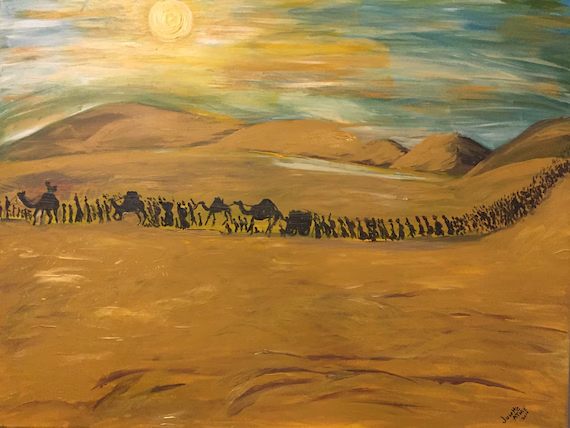The Daughter of Jairus
When Jesus was walking with his disciples through a town one day, Jairus. A ruler of the synagogue ran up to him and knelt down in front of him.
'My little daughter is very ill. I think she's dying. Please, will you come to my house and put your hands on her so that she may get better? He asked.
As Jesus began to follow Jairus, a woman pushed through the crowd around Jesus to get near him. She had been ill for twelve years and none of the doctors had been able to cure her.
She had heard of Jesus. 'If only I could just touch his clothes. I know I would get better at last, she thought.
When she was close enough, she put out her hand and touched him. At once, she was completely cured. Jesus looked at the people around him.
'Who touched me? He asked, knowing that someone had been healed.
The woman was very frightened. Trembling, she knelt down in front of Jesus and told him that when she touched him, she had been cured of her illness.
Jesus looked down at the woman. 'Your faith has made you well, he said, smiling. 'Go in peace.
Jesus went with Jairus to his house, followed by a crowd of people. Before he reached the house, someone came running out.
Weeping, she cried to Jairus. 'You are too late. Your little daughter is dead. Don't ask Jesus to come.
'She is not dead. She is asleep, said Jesus, and he walked on to the house with three disciples.
Peter. James and John. Jesus asked everyone else to leave the house, except the girl's mother and father.
Then he went into her room, gently took her hand, and said; 'Little girl, get up.
At once, the girl opened her eyes and got up off her bed. The girl's parents were astonished and overjoyed to see their daughter alive and well again.
'Now give her something to eat, said Jesus.
But tell no one about this.
Then he and his three disciples quietly left the house.












Comments
Post a Comment